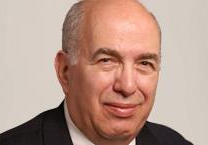How to Manage Your Money: What to Do If You Think You Have an Edge

Some readers will think my prior two posts — where I explained the concept of “edge” and explained how much it would cost to have one — are a load of rubbish.
It may be that such readers consider themselves among the sophisticated investors who can outperform the market.
You may be in the very small minority of people where this is the case, but if you are going to claim an edge and actively manage your own portfolio, I would encourage you to consider a few things:
- Be clear about why you have an edge to beat the market, and be sure you are not guilty of selective memory. Unlike predicting the winner of Saturday’s football game, predicting that Google would double when it later did makes us appear wise and informed. Perhaps we are subconsciously more likely to remember that than when we proclaimed Enron would be a doubler. Because we add and take money out of our accounts continuously, we are unlikely to keep track of our exact performance and can continue the delusion indefinitely.
- Do not trade frequently. If you turn over your portfolio more than once per year, you should have a really good reason to do so. The all-in costs of trading are high and greatly reduce long-term returns.
- Regardless of whether you have an edge or not, be sure to think a lot about risk levels, taxes, liquidity, and how your investment portfolio correlates with the rest of your assets and liabilities.
- Do not start panicking if things go against you.
- You may decide you have an edge in one sector, geography, or asset class. That’s fine. Do exploit this edge, but also make sure it does not lead to undue geographic or sector concentration and investing like someone without an edge in the rest of your portfolio.
- Continuously reconsider your edge. There is no shame and likely good money in acknowledging that you belong to the vast majority of people who don’t have an edge. Investors who initially do well in the markets will often think it was skill rather than luck based on that first experience. Many reconsider later…
The cost of the time spent managing the portfolio varies from individual to individual (we all value our time differently), and while some consider it a fun hobby or game akin to betting even, others consider it a chore they would rather avoid.
Edge Can Take Many Forms
Although the discussion above may suggest that having an edge involves picking winning stocks or successful active managers only, there are many ways investors implicitly claim an edge in their investments, often without having it. For example:
- Will mid-caps outperform large caps?
- Will Buffett continue his outperformance?
- Will emerging markets outperform developed markets over the next decade?
- Will tech stocks do better than financial stocks?
- Will Germany outperform the United Kingdom?
Similarly, the discussion of edge is not exclusive to stock markets. You can have an investment edge in many things other than the stock market and profit greatly from that edge. For example:
- Will Greece default on its loans?
- Will the price of oil increase further?
- Will the USD/GBP exchange rate reach 2 again?
- Will the property market increase/decrease?
- Will interest rates remain low?
- The list goes on.
Investing without Edge
For someone to accept that they don’t have an edge is a key “aha” moment in their investing lives. Perhaps without knowing it at first, that person will be much better off as a result. At this point, you are hopefully at least considering a couple of things:
- Edge is hard to achieve, and it is important to be realistic about whether you have it.
- Conceding edge is a sensible and very liberating conclusion for most investors. It makes life a lot easier (and wealthier) to acknowledge that you can’t better the aggregate knowledge of a market swamped with thousands of experts who study any given security as well as the wider markets.
Once you have conceded edge, you are unfortunately not done. In fact, you have only arrived at the starting point and begun your journey as an investor who has conceded edge.
There is every chance that you will be a far wealthier investor as a result of this. For the edgeless investor, it makes sense to pick the most diversified and cheapest portfolio of world equities and combine that with some government and potentially corporate bonds through index tracking and cheap products to suit your risk and tax profile.
Do this while considering your non-investment assets/liabilities, time horizon of investment, and a few other things, and you are doing extremely well. Once you embrace that you don’t have an edge, it is fortunately pretty intuitive and really not that difficult to put together a simple and powerful investment portfolio. More on that in the next blog post!
Editor’s Note: You should subscribe to Inside Investing here. You can read more about lars’ philosophy in his recent book, Investing Demystified, which is available on Amazon and elsewhere.



One comment on “How to Manage Your Money: What to Do If You Think You Have an Edge”